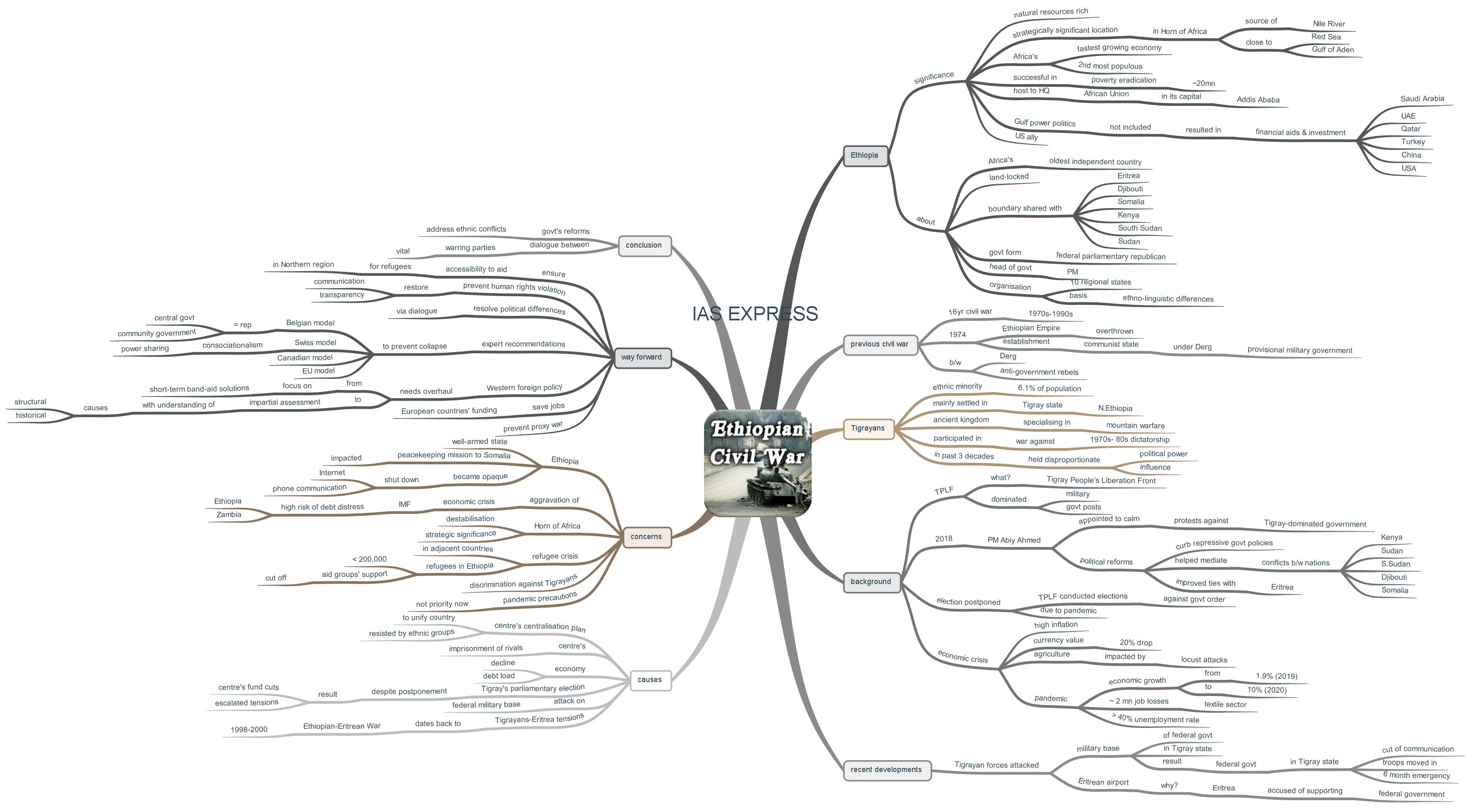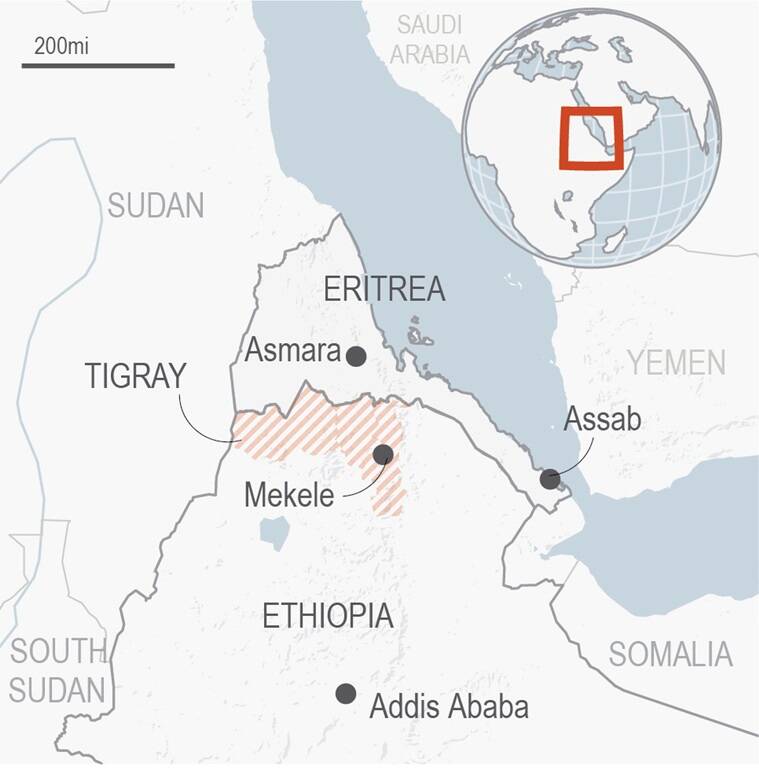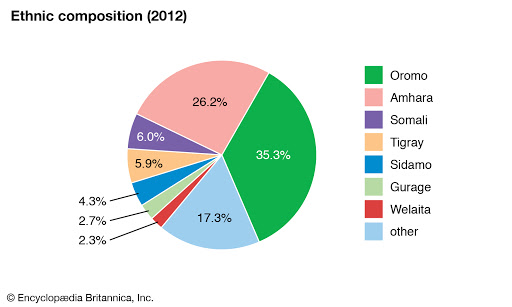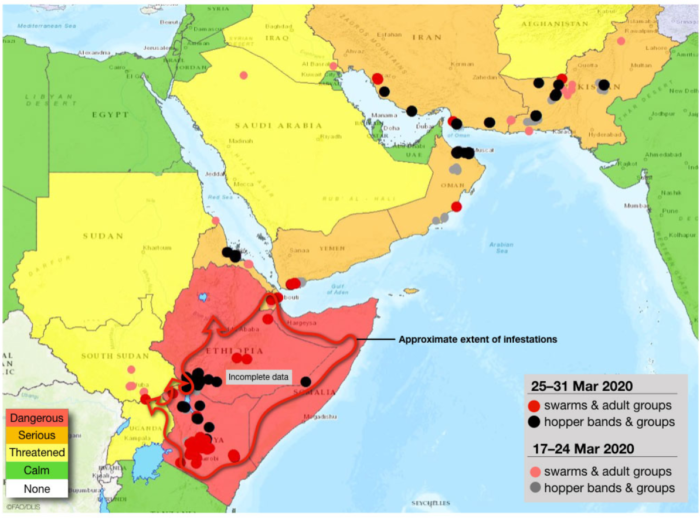Ethiopian Crisis – All You Need to Know
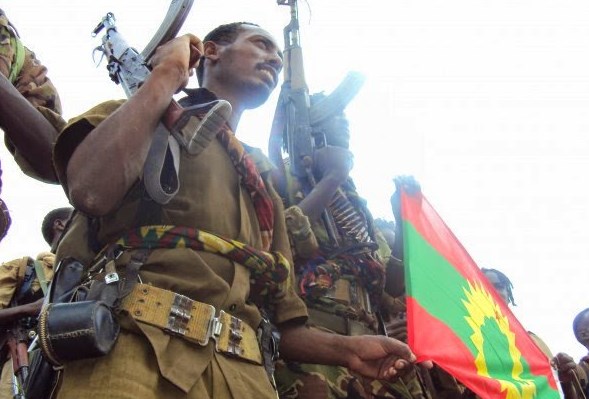
From Current Affairs Notes for UPSC » Editorials & In-depths » This topic
IAS EXPRESS Vs UPSC Prelims 2024: 85+ questions reflected
Ethiopia is fast descending into a civil war situation again, after its recent impressive economic and diplomatic performance. The ethnic conflicts at the heart of this situation is threatening to destabilize not only the country but the entire Horn of Africa region- inviting the concern of the international community.
What is the significance of Ethiopia in Africa?
- It lies in a region rich in natural resources. Its location in the strategically significant Horn of Africa is a major advantage- source of the Nile River and proximity to the Red Sea and the Gulf of Aden.
- It has the fastest growing economy in Africa and is the 2nd most populous country in the continent. In the past decade, it had successfully pulled over 20 million people out of poverty.
- It plays an outsized role in African politics. It even hosts the headquarters of the African Union at its capital, Addis Ababa.
- Ethiopia is a close ally of the USA and is considered as a strategic linchpin in the volatile region of Horn of Africa.
- It has largely remained away from the Gulf power politics and hence receives financial aids and investments from a range of powers like Saudi Arabia, UAE, Qatar, Turkey, China, USA, etc.
What is happening in Ethiopia?
Background
- Ethiopia is the oldest independent country in Africa. It is a land-locked
- It shares boundary with Eritrea, Djibouti, Somalia, Kenya, South Sudan and Sudan.
- The country follows a federal parliamentary republican form of government. The Prime Minister serves as the head of government.
- The country is organised into 10 regional states on ethno-linguistic basis. One of these states is Tigray.
Previous Civil War
- Ethiopia is not new to civil wars. Between 1970s and 1990s, the country faced civil war for more than 16 years.
- In 1974, the Ethiopian Empire was overthrown and a communist state was established. A provisional military government, called the Derg, was set up.
- The civil war was between this Derg and anti-government rebels. It raged on till 1991, leaving over a million people dead due to war and a million more due to famine and other issues.
Who are the Tigrayans?
- The Tigrayans are an ethnic group mainly settled in the Tigray state in northern Ethiopia. They are an ancient kingdom specialised in mountain warfare.
- Their fighters contributed to the war against the 1970s- 80s dictatorship and are regarded as national heroes.
- They constitute about 1% of the population of Ethiopia- i.e. an ethnic minority.
- However, they have historically held disproportionate political power and influence for nearly 3 decades.
- The new government in 2018 has largely succeeded in removing many Tigrayan leaders from key posts over the years. Some had even been arrested under charges of corruption, human rights violations and security related crackdowns.
- The Tigray region has a paramilitary force and a local militia numbering about 250,000.
Situation before the November conflicts
- Traditionally, Tigray People’s Liberation Front (TPLF) has dominated the military and the government posts.
- In 2018, when PM Abiy Ahmed took office, the situation changed. He was mainly appointed by the ruling coalition to calm the raging anti-government protests against a Tigray-dominated government.
- The new government has brought in sweeping political reforms and curbed many of the repressive measures that were in place.
- It has played a significant role in mediating regional conflicts between nations including Kenya, Sudan, South Sudan, Djibouti and Somalia.
- The government also mended ties with Eritrea– a country that has traditionally been hostile to the Tigrayans.
- With the advent of the pandemic crisis, the government had postponed the elections. But the TPLF were displeased and conducted elections against the federal government order.
- Apart from this, its economy has been facing a rough patch with soaring inflation and a 20% drop in its currency value against the dollar.
- Agriculture, which accounts for a major part of Ethiopia’s GDP, recorded its worst harvest in decades due to the locust attacks.
- The pandemic situation has worsened the economy outlook– economic growth could drop to 9% from last year’s 10%, over 2 million job losses in textile sector and a more than 40% unemployment rate.
Recent Developments
- In November, the domestic conflicts flared up in northern Ethiopia, raising fears of another Civil War.
- The Tigrayan forces allegedly attacked a military base of the federal government in the Tigray state and stole artillery. However, the Tigray leaders accuse the federal government of starting the fight.
- The centre headed by Nobel Laureate PM Abiy Ahmed responded by cutting off communications in the heavily armed northern state and moved in the troops to the region.
- The situation was described by experts as an ‘inter-state war’.
- The centre imposed a 6 month emergency in Tigray.
- The Tigrayan forces fired rockets at an Eritrean airport– accusing Eritrea of supporting the federal government. This internationalised the issue.
- By late November, the federal government claimed to have taken control over the northern territories.

What are the causes of the war?
- The 10 states have been ethnic strongholds and the 2018 liberalization efforts from the centre had inadvertently set fire to the regional frustrations. Rivalling ethnic groups like the Tigray, Oromo (to which the PM Abiy belongs), Amhara and Somali have come out into the open leading to violent clashes killing people in scores.
- The centre pushed for centralisation to unify the country but various ethnic groups, including the Tigrayans, have been resisting the move.
- Though the federal government released many political prisoners from secret prisons and welcomed back exiled dissidents, it had started to imprison its own opponents.
- Declining economic performance and increasing debt load.
- Though the centre postponed the general elections, the Tigray region held its own parliamentary election to which the centre responded with fund cuts. This angered the Tigrayan leadership.
- The alleged attack on the federal military base is one of the major triggers of the war.
- The tension between Tigrayans and Eritrea- dating back to the Ethiopian-Eritrean War between 1998 and 2000– is also a contributor.
Why is it a cause for concern?
- Ethiopia is one of the most well-armed states in Africa. A war here could lead to the collapse of a state which was just recently receiving praise for its stability and economic growth.
- The already dire economic situation could be aggravated by a potential insurgent situation.
- According to IMF, Ethiopia is one of the 2 African countries at high risk of debt distress (the other country being Zambia).
- If the conflict spills over its borders, it could destabilize the Horn of Africa– a region that holds strategic significance. Eg: both the USA and China have several military bases in the region.
- Refugees have been crossing over into adjacent countries like Sudan. Ten of thousands of people are said to have arrived in Sudan from Ethiopia due to the conflicts.
- Even before this situation, Ethiopia housed more than 200,000 refugees and displaced persons according to the UN reports. The fighting has cut off vital support from aid groups to these vulnerable persons in the north.
- The situation has increased strain on Ethiopia’s peacekeeping mission to Somalia.
- Shut down of internet and phone communication has led to a lack of transparency. For examples, there have been varying reports of the number of casualties and displaced.
- The country had only recently witnessed ethnic clashes in June. Recently, there have been warnings of ethnic cleansing and genocide. There have been reports of war crimes on both sides and Amnesty International reported massacres by pro-Tigray militia.
- Increasing discrimination against Tigrayans. Tigrayans across the country have been dismissed or furloughed in light of these events. Even officers of international organisations have not been spared.
- In addition to this, there is the global concern about the pandemic continuing to claim lives. Due to the one month long war, people have been forced to stay in crowded camps and COVID-19 precautions have largely taken a backseat.
What is the way ahead?
- There is an urgent need to ensure accessibility to aid for the remaining refugees in the northern areas. Otherwise, this could quickly escalate into a major humanitarian crisis.
- Need to restore communication and transparency to prevent human rights violations.
- Need to resolve political differences through dialogue. This has been the advice of African Union, EU and UNSC.
- Experts have been recommending various approaches to keep Ethiopia from collapsing:
- Belgian model for accommodating diversities which involves elements like equal representation in central government and community government.
- Swiss model of consociationalism (a type of power sharing)
- Canadian model
- EU model etc.
- Western foreign policy has generally been geared towards short-term band-aid solutions. These often disregard underlying problems. What is required is impartial assessment with an understanding of the structural and historical causes- followed by use of long-term approaches.
- Several countries have set up funds to help Ethiopia’s situation. Eg: UK and Germany set up a 5 million USD fund for saving jobs in Ethiopia.
- The involvement of Eritrea in Ethiopia’s internal issues may serve as an invitation for Tigrayan forces to look for external aid. In this light, major external powers need to abstain from starting a proxy war in Ethiopia.
Conclusion
Ethiopia’s fall from grace has been a result of ethnic conflicts that festered unaddressed for years while the nation undertook major reforms in other spheres. These fault-lines intensified with the onset of economic issues and more recently, the pandemic. As major powers and neighbouring countries look to intervene, there is an urgent need for dialogue between the warring parties to prevent the common citizen and the vulnerable economic situation from becoming casualties of war
Practice question for mains
Examine how the economy and the common citizen become collateral damage in wars between centre and state with reference to the recent Ethiopian War. (250 words)
If you like this post, please share your feedback in the comments section below so that we will upload more posts like this.
